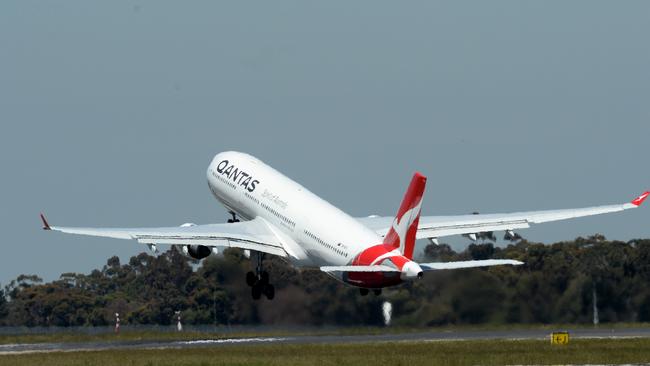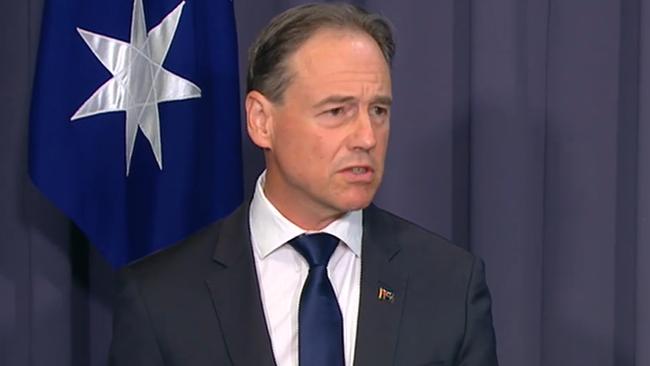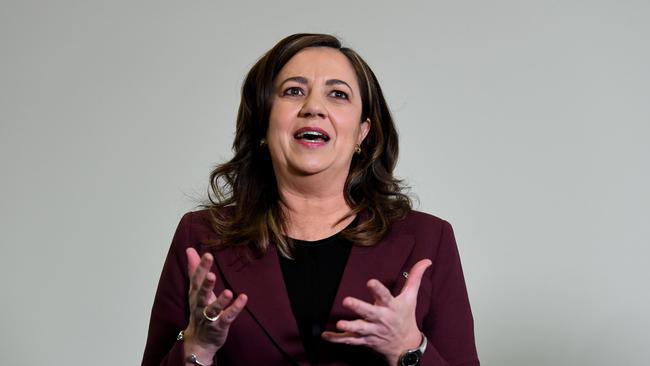Australia pauses reopening of international borders due to threat of Omicron Covid variant
Australia’s international border reopening, which was due to take place on December 1, has been put on hold due to the threat of the new Omicron Covid-19 variant.
QLD Coronavirus News
Don't miss out on the headlines from QLD Coronavirus News. Followed categories will be added to My News.
The planned reopening of Australia’s borders to international students and skilled migrants has been put on hold amid the threat of the new Omicron Covid-19 variant.
Skilled visa holders and international students were due to be allowed back into the country without quarantine from December 1 via New South Wales and Victoria.
But the national security committee, after a meeting late on Monday, put a pause on the plan until December 15 in order to buy more time to collect data on the Omicron variant.
The planned opening of a travel bubble with South Korea and Japan has also been paused until December 15.
RELATED: Five cases of Omicron now in Australia

“The temporary pause will ensure Australia can gather the information we need to better understand the Omicron variant, including the efficacy of the vaccine, the range of illness, including if it may generate more mild symptoms, and the level of transmission,” the federal government stated
Health Minister Greg Hunt earlier on Monday had signalled that the national security committee would “not hesitate” to take additional steps, if the medical advice warranted as such.
The latest variant of concern has also sparked an emergency meeting of national cabinet to be held on Tuesday afternoon so state and territory leaders can consider tougher precautionary measures, if needed.
Premier Annastacia Palaszczuk on Monday afternoon said the state was sticking to its reopening roadmap for now, but wanted to find out at national cabinet how many people who had recently arrived from overseas were currently not in quarantine around the country.
Health authorities and experts, while on high alert, are asserting there is no clear evidence yet that Omicron causes more severe illness than its predecessors, or what the impact is on the efficacy of vaccines.

Early evidence suggests Omicron was at least as transmissible as the Delta variant.
There are now five confirmed cases of Omicron in Australia — none in Queensland.
Australia had already reinstated border restrictions on nine southern African nations so that anyone who has been in these countries and is not an Australian citizen, permanent resident, or their immediate family will not be able to enter Australia.
Other nations, including Japan and Israel, haves barred entry to all foreign nationals.

The move by Japan, which comes into force on Tuesday, reverses a decision earlier this month to admit foreign business travellers, students and interns under certain conditions.
Mr Hunt also confirmed he had asked Australia’s peak authority on vaccines to look at potentially bringing the Covid-19 vaccine booster shot program forward in light of international evidence and the Omicron variants.
He also assured that Australia’s contracts with pharmaceutical companies Pfizer and Moderna for Covid-19 vaccines allowed the country to receive the most up-to-date jabs available to fight Omicron.
Pfizer has publicly stated it would need about 100 days to alter its existing jab to tailor-fit the fight against Omicron.
Chief medical officer Professor Paul Kelly said authorities were not sure if Omicron caused more severe illness.
“South Africa has a very different situation to us in terms of the demography of the country, a much younger population than Australia, different health system, and a different laboratory network, et cetera,” he said.
“(It also has) very high HIV rates, which can affect how any virus and any disease can be transmitted, and particularly the severity of illness. So, we don’t... We’re still looking at that.”
While much still needs to be uncovered about the variant, Prof Kelly said it would be a “very good Christmas present” if the strain turned out to be less harmful than the Delta variant.
CSIRO special health advisor Rob Grenfell said more information on the infectivity and severity of the variant was needed, but if it was less serious and became the most dominant variant it would be “the next step in living with Covid-19”.
Queensland recorded five new cases of Covid-19 on Monday, all in a family currently in hotel quarantine.
The latest vaccination data shows 86.27 per cent of the state’s eligible adults have had at least one dose of a Covid-19 vaccine, while 76.08 per cent are fully jabbed.
The rolling average of first jabs in Queensland was below 10,000 for the third day in a row, the longest low streak since mid-August.



